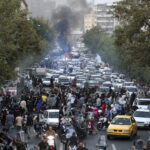Decolonization movements have played a significant role in shaping the modern political history of many countries around the world. In the 20th century, numerous colonies and territories fought for and gained independence from their colonial rulers, leading to a major shift in global power dynamics. This article explores the key decolonization movements, their impact, and the lasting legacy they have left on the contemporary political landscape.

Credit: www.amazon.com
Key Decolonization Movements
Decolonization movements took place across various regions, including Africa, Asia, and the Caribbean. One of the most notable examples is the African decolonization movement, which saw many African nations gaining independence from European colonial powers such as Britain, France, and Belgium. Ghana, led by Kwame Nkrumah, became one of the first sub-Saharan African countries to gain independence in 1957, marking the beginning of the end of colonial rule in Africa.
Similarly, in Asia, countries like India, Pakistan, and Sri Lanka successfully secured independence from British colonial rule following significant movements led by iconic figures such as Mahatma Gandhi and Jawaharlal Nehru. The decolonization of the Caribbean also saw countries like Jamaica and Trinidad and Tobago freeing themselves from British rule, establishing their own sovereign nations.
Impact of Decolonization Movements
The impact of decolonization movements was profound, not only for the newly independent nations but also for the global political landscape. The movements reshaped international relations, challenging the existing power structures and propelling many newly independent countries onto the world stage. Additionally, decolonization brought to the forefront issues of self-determination, national sovereignty, and human rights, which continue to shape global politics today.
Decolonization also had a significant impact on the former colonial powers. Economically, the loss of colonies meant a decline in resources and markets for these powers, altering their global influence. Politically, the end of colonial rule forced these countries to redefine their roles in the international community and navigate a new era of post-colonial relations.
Legacy of Decolonization
The legacy of decolonization is still evident in the contemporary political landscape. Many former colonies continue to grapple with the legacies of colonialism, including economic disparities, social upheaval, and political instability. The process of decolonization also led to the formation of the Non-Aligned Movement, a group of countries that did not align with either the Western or Eastern bloc during the Cold War, demonstrating the enduring impact of decolonization on global politics.
Furthermore, the intellectual and cultural legacy of decolonization is reflected in the rise of postcolonial studies and the exploration of identity, power, and representation in literature, art, and academia. Decolonization movements have inspired ongoing discussions about race, equity, and social justice, challenging the traditional narratives of history and empowering marginalized voices.

Credit: eightify.app
Frequently Asked Questions On Unveiling Modern Political History: Empowering Decolonization Movements
Faq 1: What Is Decolonization And Why Is It Important?
Decolonization refers to the process of overturning colonial rule and restoring self-governance to formerly colonized nations. It is important because it promotes independence, freedom, and self-determination for these nations.
Faq 2: Which Countries Were Involved In Decolonization Movements?
Several countries across different continents were involved in decolonization movements. Some notable examples include India, Ghana, Algeria, and Kenya.
Faq 3: What Were The Main Factors That Led To Decolonization?
Factors that led to decolonization included the rise of nationalist movements, the impact of World War II on colonial powers, and the spread of anti-colonial sentiments globally.
Faq 4: How Did Decolonization Affect The Political Landscape Of Post-colonial Nations?
Decolonization had a profound impact on the political landscape of post-colonial nations. It resulted in the formation of new governments, the establishment of national identities, and the reshaping of geopolitical dynamics.
Conclusion
In conclusion, the decolonization movements of the 20th century have left an indelible mark on modern political history. The struggles for independence and self-determination have reshaped the global political landscape, highlighting the enduring significance of decolonization in shaping contemporary international relations. As we continue to grapple with the legacies of colonialism, the lessons and impact of decolonization remain pertinent in fostering a more inclusive, equitable, and just world.
Guest Author Sakhawat-Shuvo wrote and edited this Article based on his best knowledge and understanding. These opinions and remarks are not endorsed or guaranteed by epichistoria.com or EpicHistoria. The Epic Historia does not guarantee this article’s content. Readers should verify and use their judgment before trusting the content. Also, the Images used in this Article are the copyright of their Respective Owners. Please use our Comment Box or Contact Us form to report this content. This information is not accountable for losses, injuries, or damages.

